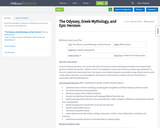
Remix this template to upload your WISELearn Grant lesson and unit plans into WISELearn
- Subject:
- Education
- English Language Arts
- Material Type:
- Lesson
- Date Added:
- 07/23/2019

Remix this template to upload your WISELearn Grant lesson and unit plans into WISELearn
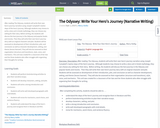
After reading The Odyssey, students will write their own hero's journey narrative using Joseph Campbell's twelve steps of the hero's journey. Although students may choose to write a story set in Greek mythology, they can choose any setting for their story. Before writing, the students will discuss the hero journey in the Odyssey and popular books and movies. Then they will write their own hero's journey story with an original character and plot. Students will be assessed on development of their introduction, plot, and conclusion as well as character development, setting, and theme (lesson learned.) They will also be assessed on their organization (structure and transitions), style, voice, and mechanics. This unit was created for a classroom of tier two and tier three students who often struggle with organizing their thoughts for writing.

This iTunes U course/lesson is an overview of how to write a MELCON paragraph. In order to access the course, one must first access iTunes U through the Apple iTunes store, and then search for Paragraph Writing within the Courses category. The course is free and accessible on PCs and iOS devices.
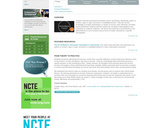
Students will learn persuasive techniques used in advertising, specifically, pathos or emotion, logos or logic, and ethos or credibility/character. They will use this knowledge to analyze advertising in a variety of sources: print, television, and Web-based advertising. Students will also explore the concepts of demographics and marketing for a specific audience. The lesson will culminate in the production of an advertisement in one of several various forms of media, intended for a specific demographic.
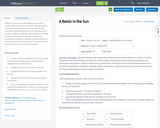
Students develop close reading skills as they examine Lorraine Hansberry's A Raisin in the Sun. The play develops many thematic concepts such as the strength of family, issues with conflicting expectations, and stereotyping and prejudice. Students analyze the play through the close study of scenes and character development as well as the examination of symbolism, language choices, and structure. Students will also view a film version of the play to enhance understanding as well as analyze some poetry.
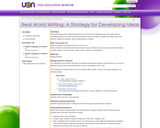
Real-world writing allows students and teachers to connect the dots between writing in the classroom by classifying writing into six areas: Express and Reflect; Inform and Explain; Evaluate and Judge; Inquire and Explore; Analyze and Interpret; Take a Stand/Propose a Solution.
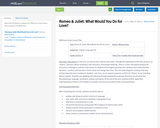
Remix this template to upload your WISELearn Grant lesson and unit plans into WISELearn

This lesson allows students to explore the different sides associated with the issue of slavery. It can be used for either cross-content lessons between English and Social Studies, as part of an argument unit in English, or as part of a larger unit in Social Studies. The learning objectives for the lesson are that students are able to identify those who are for and against slavery, understand how people used the U.S. Constitution to support their reasons for/against slavery, and the economic argument for or against slavery.
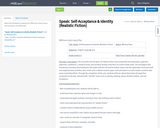
Remix this template to upload your WISELearn Grant lesson and unit plans into WISELearn
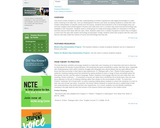
This lesson invites students to use their understanding of modern experiences with digital technologies to make active meaning of an older text, such as Shakespeare’s Romeo and Juliet, by asking students to create their own modern interpretation of specific events from the drama. Students first brainstorm a list of technologies they use, and then imagine what would happen if Romeo and Juliet were set in a modern-day world and that technology was available to the characters. Students work in small groups to create technology profiles for characters in the play, and then discuss their ideas with the class. Next, students select from a variety of projects in which they re-imagine a scene from the play with modern technology incorporated. Finally, students share their projects with the class and discuss why they made the choices of scene and technology that they did.
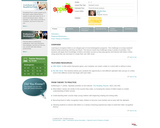
Your students will apply their knowledge of letters and letter sounds as they play games and interact with letters online, using what they see and learn to create their own ABC book.